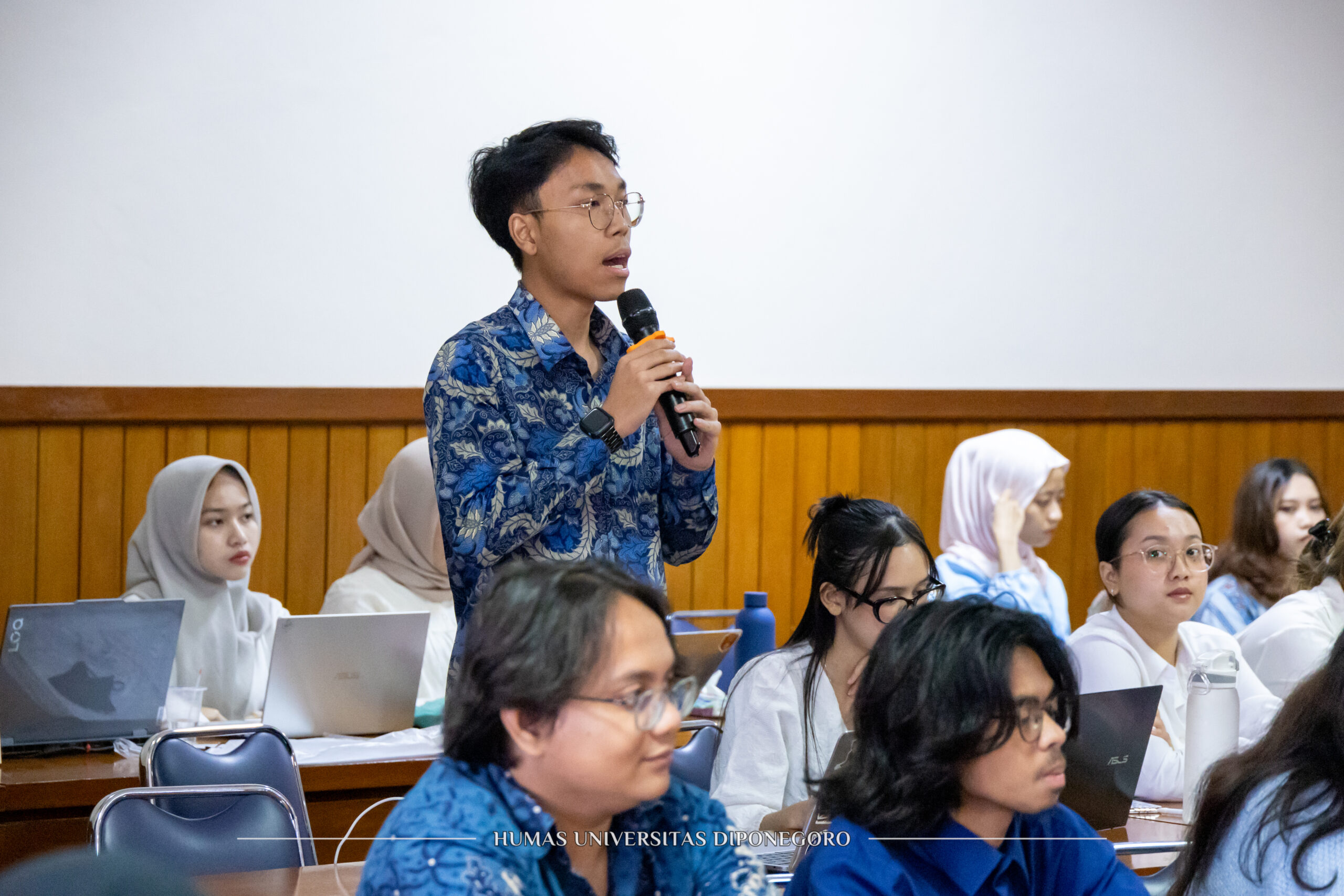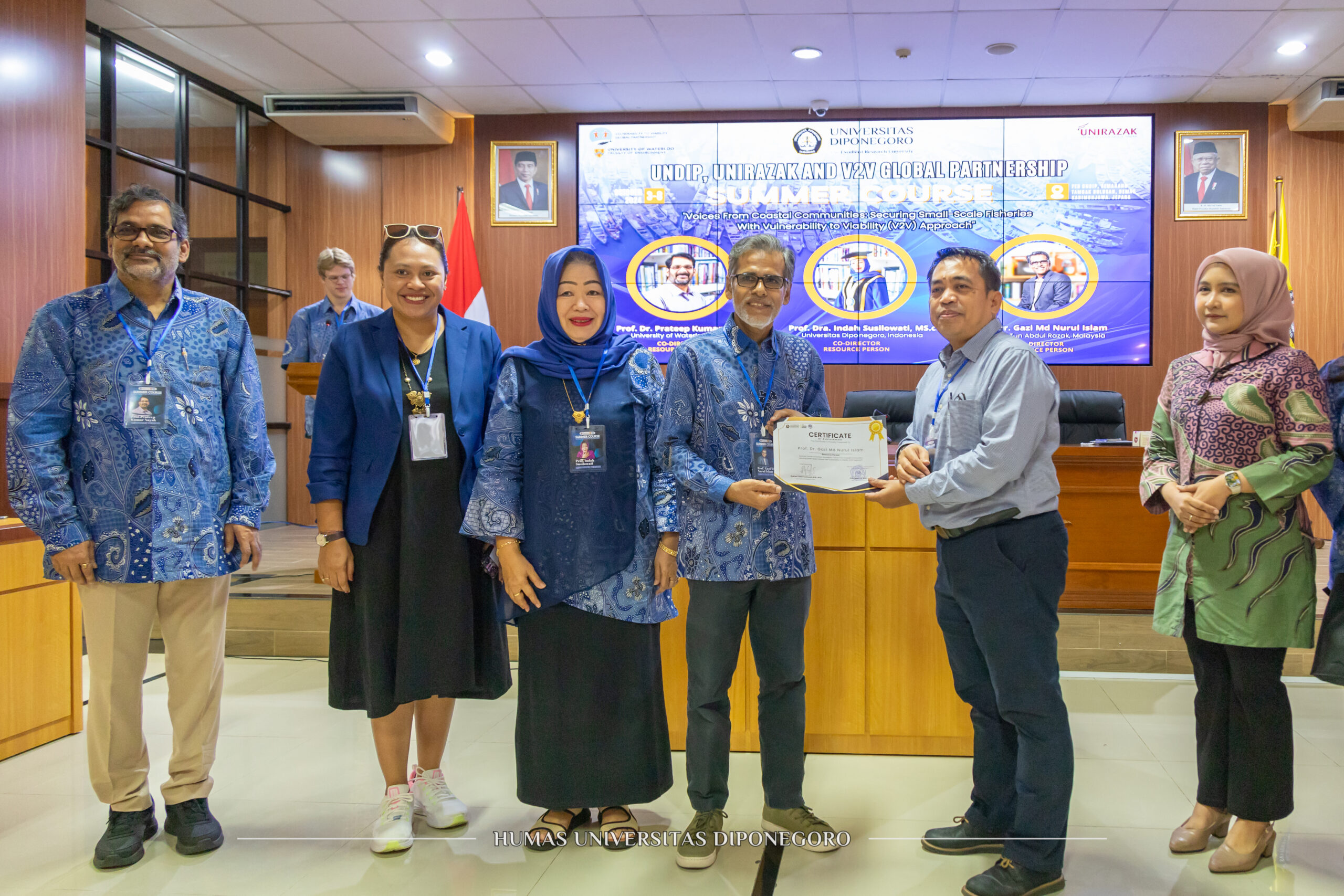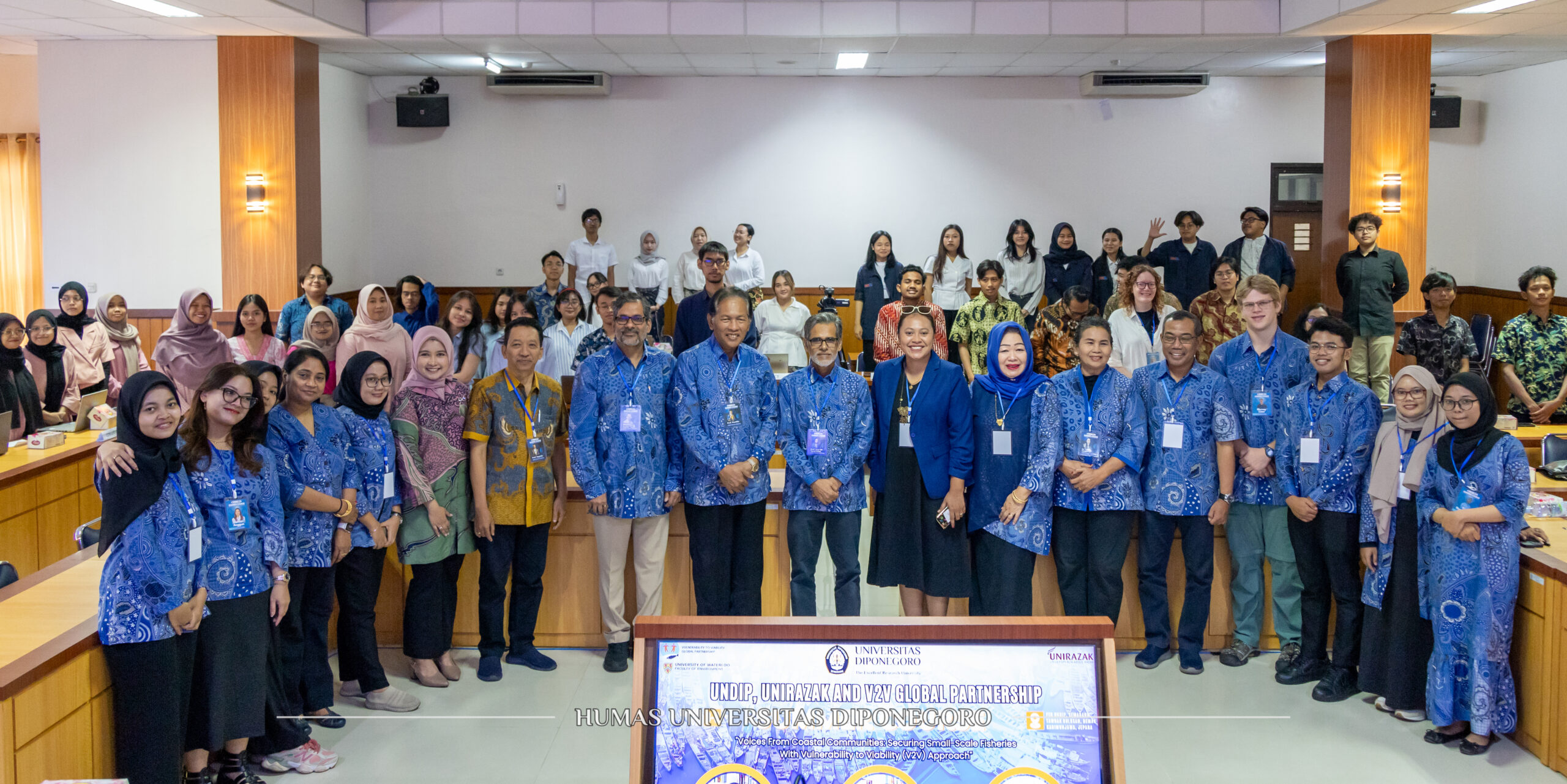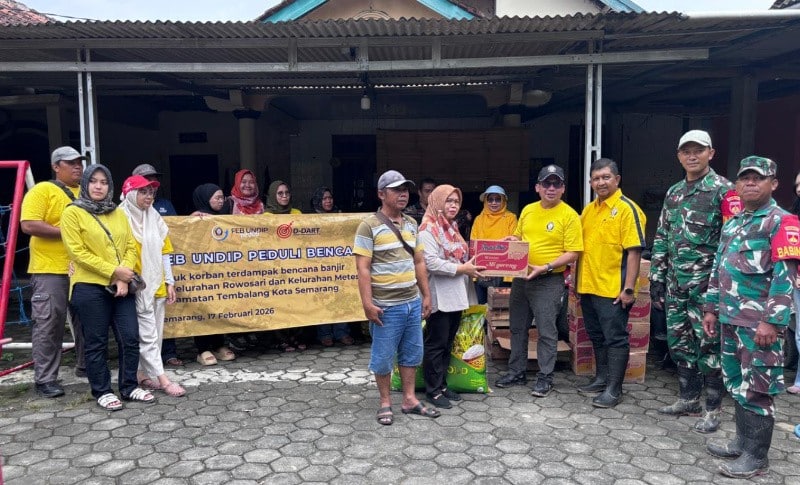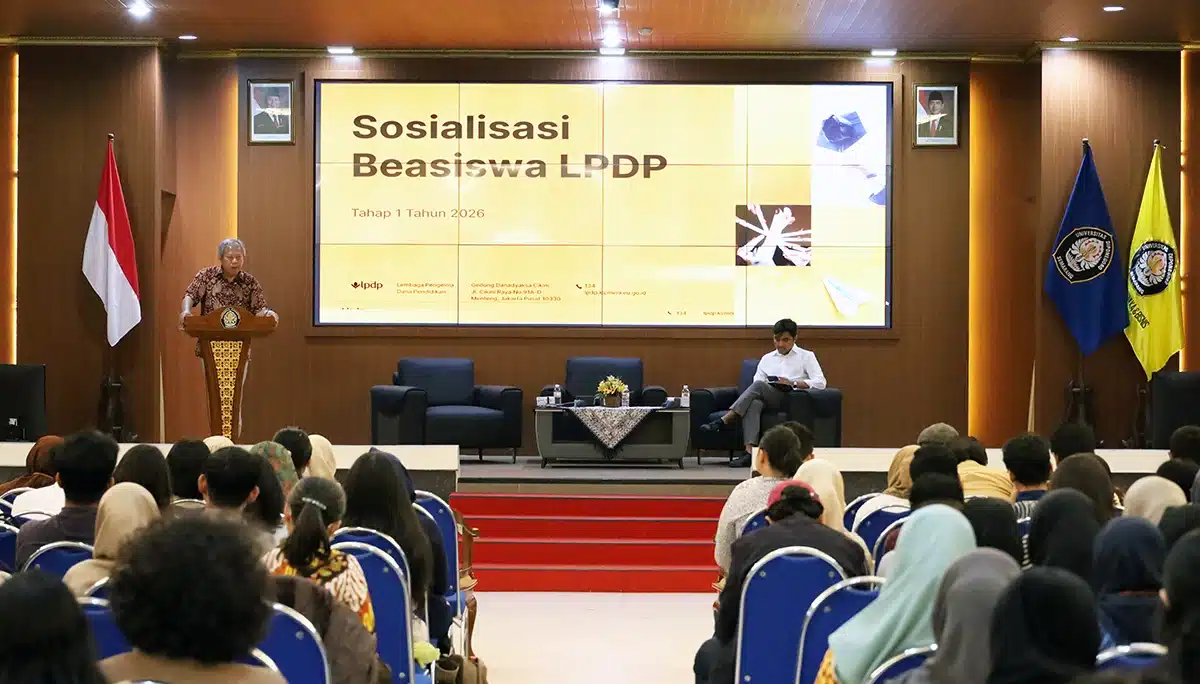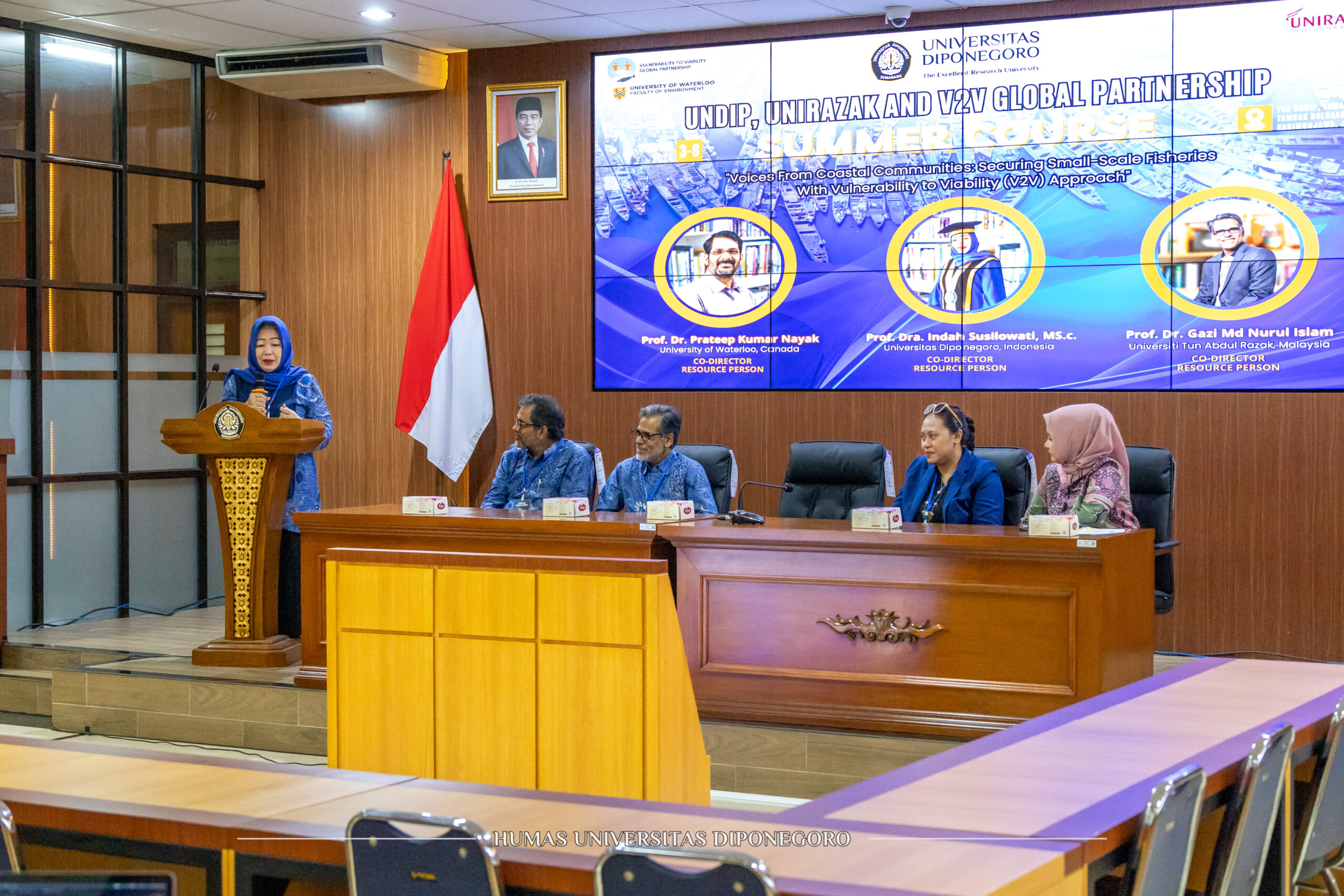Universitas Diponegoro collaborates with Universiti Tun Abdul Razak and the University of Waterloo Faculty of Environment as the V2V (Vulnerability to Viability) Global Partnership Coordinator to Organize a Summer Course titled “Voices From Coastal Communities: Securing Small-Scale Fisheries With the Vulnerability to Viability (V2V) Approach.” This Summer Course takes place from October 3-8, 2024, with the opening ceremony held on Thursday, October 3, 2024, at 08:00 AM WIB at the Faculty of Economics and Business, UNDIP, in a hybrid format (offline and online via UNDIP TV’s YouTube live stream). More than 100 participants from UNDIP, various universities, and V2V members joined the Summer Course both offline and online. The speakers for the first-day panel discussion included Prof. Dr. Prateep Kumar Nayak (University of Waterloo, Canada), Prof. Dr. Gazi Md Nurul Islam (Universiti Tun Abdul Razak, Malaysia), and Prof. Dra. Indah Susilowati, MS.c. (Diponegoro University, Indonesia).
Afina Hasya, S.T., M.M., Head of the International Office of the Faculty of Economics and Business, UNDIP, representing the Dean of FEB UNDIP, stated that this collaboration is a significant step toward initiating a partnership project aimed at broadening knowledge and perspectives on the Summer Course theme.
Prof. Dr. Ir. Hadiyanto, S.T., M.Sc., IPU, Head of UNDIP’s Reputation Office, appreciated the collaboration that has been maintained for the past 10 years, stating, “The UNDIP Reputation Office supports internationalization through research and both inbound and outbound mobility.”
The first speaker, Prof. Dr. Prateep Kumar Nayak, explained that the collaboration of these three institutions aims to enhance learning and the application of knowledge by engaging our five senses. In his session titled “Vulnerability to Viability (V2V) Approach to Understand Social-Ecological Transitions,” Prof. Prateep elaborated that Vulnerability, Viability, and Transition have multidimensional relationships in the context of small-scale fisheries. “Transition bridges efforts to address the dynamics of shifting vulnerable situations into sustainability, covering social, political, and ecological aspects,” he stated.
Human, natural, social, and financial factors influence vulnerability in small-scale fisheries. There are three dimensions of well-being: material, relational, and subjective; if one or more of these dimensions are absent, the condition tends to lean more toward vulnerability.
The second speaker, Prof. Dr. Gazi Md Nurul Islam, discussed “Social Political Dimensions of Vulnerabilities in Artisanal Fisheries—Case of Marine Protected Areas, Malaysia.” He mentioned that this panel discussion built knowledge with participants from various countries and provided practical solutions for coastal challenges.
“Tourism has a significant impact on economic development; unfortunately, our natural resources are rapidly being polluted. In the fisheries sector, especially in coastal areas of Malaysia, the challenges include ecosystem changes (pollution), social changes (culture, cooperation, conflict), and political changes (institutions, invasions, and fisheries access). Communities must find ways to survive by securing safe access to harvest and manage fishery resources,” he explained.
The third speaker, Prof. Dra. Indah Susilowati, MS.c., encouraged active participation in the Summer Course by submitting book chapters and engaging in the series of V2V-themed Summer Course activities. In her presentation titled “Blue Economy, Blue Growth, Blue Justice,” Prof. Indah showcased a survey map of the blue economy and blue growth in Tambak Bulusan and Morodemak, Demak Regency. “Our students created this map, and we can observe the mapping of the blue economy and blue growth. From here, we can estimate carbon emissions and establish policies related to ecosystems,” she explained.
The summer course’s opening event continued with a Q&A session with the participants. In the following days, a series of offline Summer Course activities included a mangrove exploration and Focus Group Discussion (FGD) with the Fishermen’s Community in Demak Regency, visits to coastal communities in Karimunjawa, and field activities at Borobudur Temple. (Titis – Public Relations)
